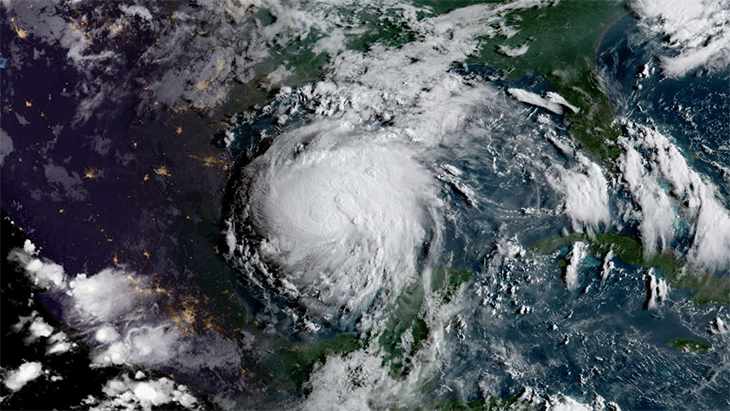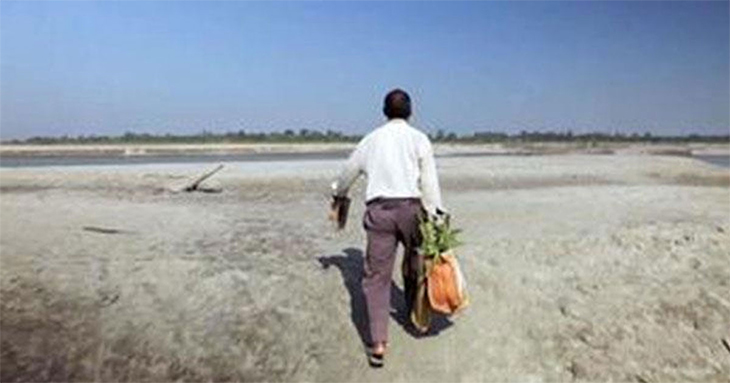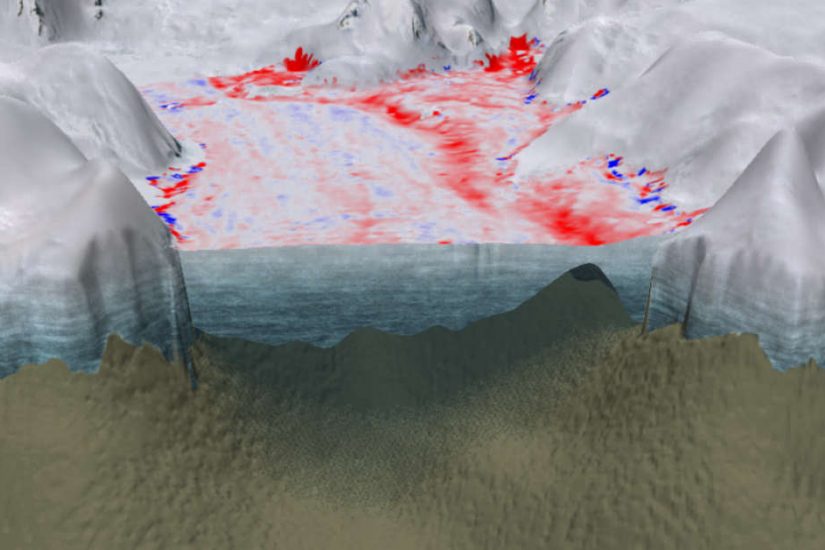By: Robin Andrews/IFL Science Harvey may have been downgraded to a storm from a Category 4 hurricane, but it will sit over Texas until the middle of the week – and its legacy will be felt for years to come. It’s being described by the National Weather Service (NWS) as an “unprecedented event”, whose “impacts are unknown and beyond anything experienced” – but what does this mean exactly?
First, a little recap. Hurricane Harvey was once mere remnants of a storm, but when it crossed the Gulf of Mexico it regenerated into an increasingly powerful hurricane. By 1930 hours CDT, shortly before landfall, it was upgraded to a Category 4 beast, with peak sustained wind speeds of 251 kph (156 mph).
The winds were never going to be the most threatening part of the hurricane though. By far, the rain, storm surge, and combined flooding was going to be the greatest risk. At the time, the surge was expected to be 3.7 meters (12 feet) high, and forecasts suggested that parts of Texas would receive as much as 71 percent of its annual precipitation coverage in around two days.
Things have turned out much worse than this. Although it’s now been massively downgraded, the storm has stalled and continues to dump rain on Texas.

And it’s still not over. NWS via Twitter
It looks like a year’s worth of rain is going to fall on Houston during the course of this storm; already, entire suburbs are submerged, and two dams keeping much of the floodwater back are full. Despite efforts to drain these days, they are expected to overflow and trigger flash flooding along their margins.
The rivers nearby are swelling, and are expected to continue to exacerbate flooding overnight and throughout Monday. Although Houston has not been issued with a mass evacuation order, it’s not far from receiving one. At the same time, thousands of members of the National Guard have evacuated tens of thousands of people, but a few have died trapped by the floods.
This could easily be one of the worst flooding disasters in U.S. History. The heavy rain will last thru much of the week #txwx #Harvey pic.twitter.com/kGWC8LL8aL
— Greg Postel (@GregPostel) August 27, 2017
“Ongoing catastrophic and life-threatening flooding will continue across southeastern Texas,” the NWS explains in a recent advisory statement. They add that “the flood threat is spreading farther east into Louisiana.”
So how often do hurricanes like Harvey come along? A quick look at the record of Atlantic coast hurricanes reveal that there have been 94 that have achieved Category 4 status since 1851. That means there’s at least one every two years. As a point of comparison, there’s a Category 5 hurricane once every three years.
The impact of each hurricane can’t just be dictated by its categorization, however. It depends on where it hits when it hits, and what its path is – and, as Hurricane Katrina revealed so grimly, it also depends on how effective the response of the authorities are. This means that weaker hurricanes can end up doing far more damage than stronger ones.
In any case, the fact that the NWS – a normally conservative scientific group when it comes to rhetoric – is describing Harvey as “unprecedented” is worth paying attention to.
The U.S. Coast Guard is continuing to rescue people across Texas in the aftermath of Hurricane #Harvey. https://t.co/GIdhowfWYl pic.twitter.com/s5XgxyQhyq
— ABC News (@ABC) August 28, 2017
Its assessment is likely based on the fact that Texas, despite having experienced at least six Category 4 hurricanes since 1900, has never undergone such rapid flooding before. This is primarily because this storm has stalled over the state; instead of spreading out the harm, it’s concentrating it in one place. This has culminated in what some are calling a one-in-1,000 year event.
It’s too early to tell what the overall outcome of the storm will be, but at this rate, it will likely be the most costly natural disaster in American history. When the Federal Emergency Management Agency (FEMA) were asked how long they’d need to be there to help the state recover, its administrator told reporters that they’re “going to be there for years.”




